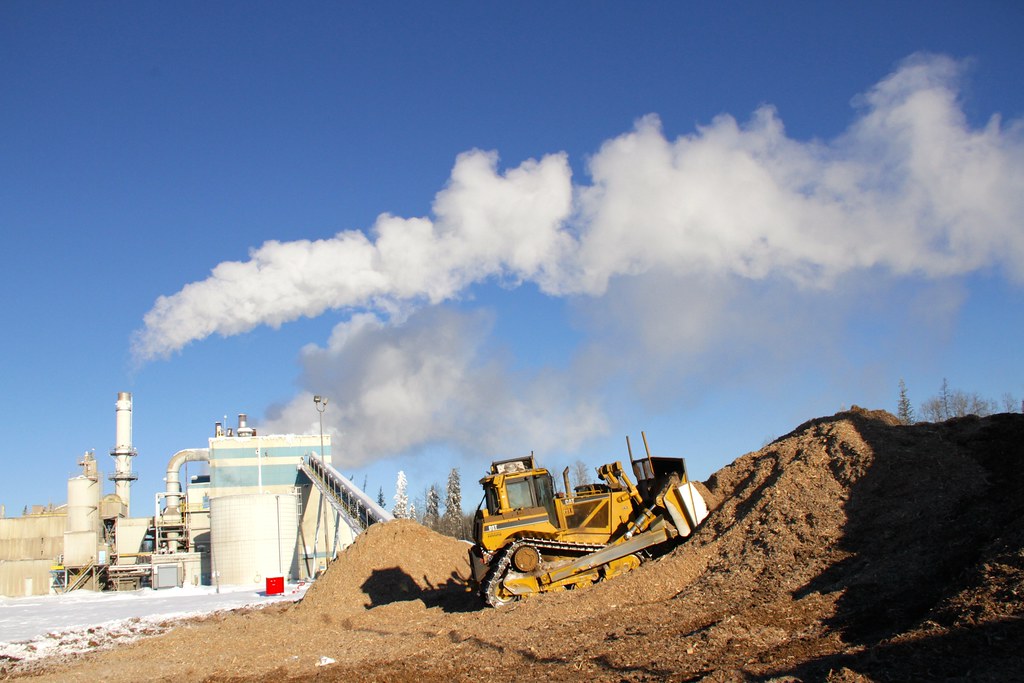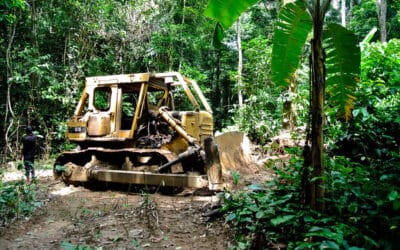Briefing by environmental groups highlights serious financial, legal and reputational risks
The Environmental Paper Network [1], Global Forest Coalition [2] and Biofuelwatch [3] have today issued a briefing to investors [4] that highlights the serious reputational, regulatory, legal, and financial risks associated with bioenergy projects that rely on wood from forests and tree plantations.
The briefing summarises the adverse climate and environmental impacts associated with bioenergy from forest wood, pointing to the scientific evidence that shows that it is a high-carbon source of energy [5], and to a civil society statement signed by 136 organisations, which calls for an end to subsidies for forest biomass [6]. It points out that failure to fully disclose all of the environmental, social and governance risks associated with bioenergy would leave investors open to regulatory and legal challenges.
The briefing for investors further highlights additional financial risks specific to biomass energy, illustrated by the experiences of several companies which have invested in such projects. These include a significant risk of fires and explosions linked to woodchip and especially pellet storage and handling, and technical failure of numerous ‘state of the art’ or ‘advanced’ biomass technology projects.
Crucially, installations that burn forest biomass are almost always dependent on public subsidies and thus highly vulnerable to policy change. In several cases, larger projects have failed to return a profit even with generous subsidies in place.
Almuth Ernsting states: “Investment in biomass energy is neither green nor a safe investment. By comparison, investing in wind and solar power not only helps to reduce carbon emissions and therefore the impacts of climate change, but it also offers immediate economic benefits when compared to bioenergy.”
Oliver Munnion adds: “Many investors who are rightly looking to move funds away from fossil fuels have been misled into thinking that burning wood for energy is low-carbon. They need to wake up to the fact that such investments are causing more destructive logging and worsening climate change. As awareness of the true impacts of biomass energy projects grows, so too do the risks of investments in them”
Merel van der Mark says: “Investing in a sector that is so highly dependent on subsidies, knowing that these subsidies are likely to end soon due to regulatory changes, is a very risky business.”
Contacts:
Almuth Ernsting, biofuelwatch@gmail.com
Oliver Munnion, oli@globalforestcoalition.org
Merel van der Mark, merel@environmentalpaper.org
Notes:
[1] The Environmental Paper Network is an alliance of over 140 non-profit organizations working together towards the Global Paper Vision. This vision expresses our common goal to create transformational change in the pulp and paper industry and wider society for a clean, healthy, just and sustainable future for life on earth. For more information visit environmentalpaper.org.
[2] Global Forest Coalition is a coalition of 99 NGOs and Indigenous People’s Organisations from 64 countries working to defend forest ecosystems, social justice and the rights of forest peoples. See globalforestcoalition.org
[3] Biofuelwatch is a UK/US non-profit organisation researching and raising awareness of the impacts of large-scale bioenergy and campaigning against destructive bioenergy developments. See biofuelwatch.org.uk
[4] See https://globalforestcoalition.org/wp-content/uploads/2019/04/Risky-Biomass-Business.pdf
[5] See letter to the EU signed by 800 scientists in January 2018: pfpi.net/wp-content/uploads/2018/04/UPDATE-800-signatures_Scientist-Letter-on-EU-Forest-Biomass.pdf and list of scientific studies about the climate impacts of biomass energy: biofuelwatch.org.uk/biomass-resources/resources-on-biomass/




